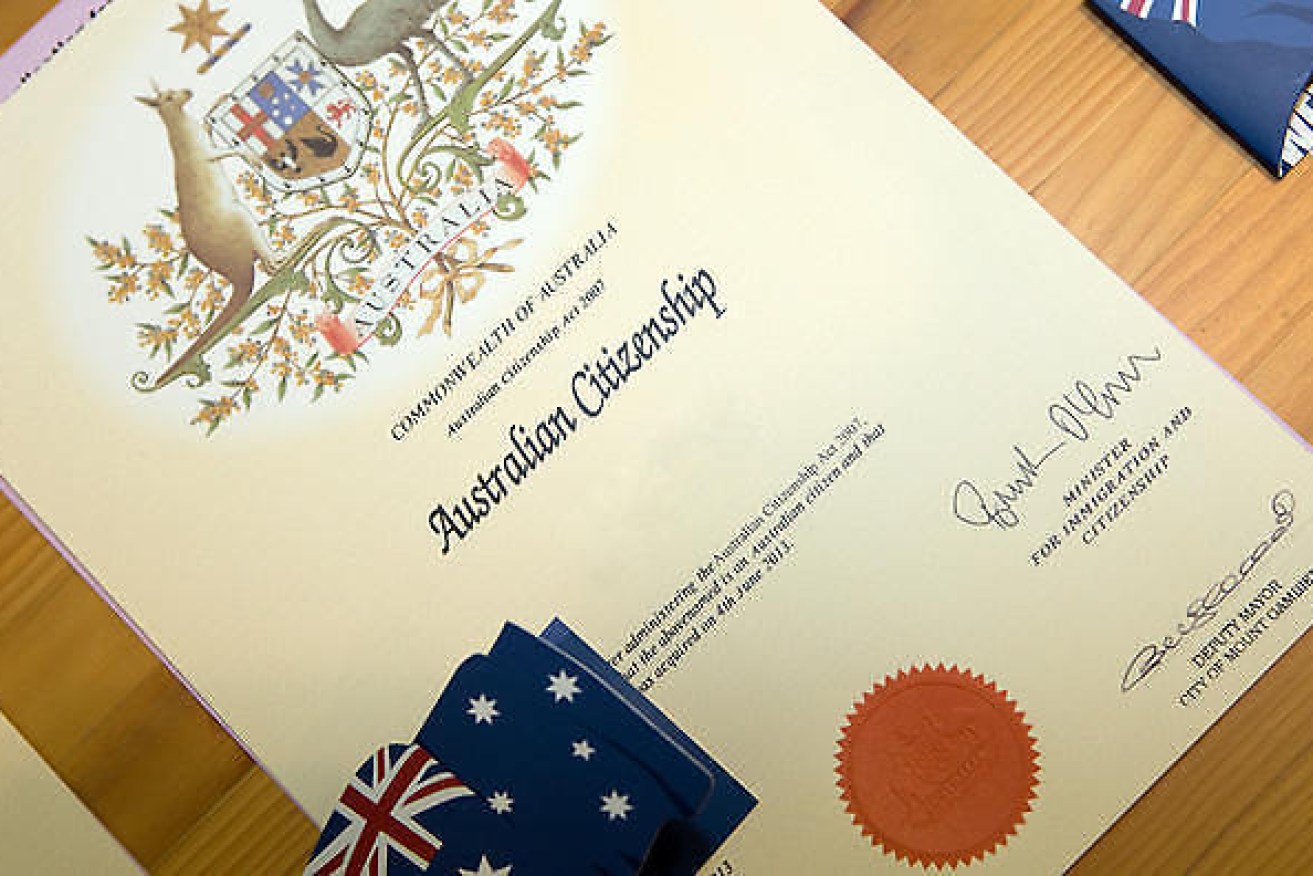Reject English test, longer wait for citizenship, UN tells Senate


The Turnbull government has unveiled plans to change Australia's citizenship laws. Photo: AAP
The Turnbull government is facing fresh criticism from the United Nations’ refugee agency, which has urged the Senate to reject key aspects of its contentious citizenship legislation.
Days after the UNHCR claimed it had been misled by the government over the future of asylum seekers on Nauru and Manus Island, it used a submission to a Senate inquiry to attack plans to toughen Australia’s citizenship laws.
The agency said the legislation was “not necessary” and warned that it would “disproportionately affect” refugees.
It said the requirement for prospective citizens to hold permanent residency for four years rather than 12 months meant “a significant number of refugees” were “likely to wait in excess of 15 years” before being granted citizenship.
A proposal to change citizenship rules for abandoned and stateless children would contravene Australia’s obligations under the 1961 Statelessness Convention, it argued.
The law change meant an abandoned child would not be granted citizenship if it was proved they were physically outside the country before they were found in Australia.
The UNHCR also opposed plans for a standalone English test at IELTS ‘General’ level six for prospective citizens – a position echoed by English language experts in submissions to the inquiry.
With Labor vowing to block the changes, the government will need to win the support of the Senate crossbench to pass the legislation.

Peter Dutton has called on Labor to back the citizenship changes. Photo: AAP
The nearly 500 inquiry submissions represent the first significant scrutiny of the legislation after the Immigration Department refused to publish the results of a round of public consultation earlier in the year.
The Australian Council of TESOL Associations said it was “categorically opposed” to the introduction of a English test, arguing the IELTS was “not fit-for-purpose”, while the Applied Linguistics Association of Australia (ALAA) similarly described it as “not designed for the intended purpose”.
Monash University’s School of Languages said the government’s decision to set the test at level six was “very much out of step with other language tests for citizenship internationally”.
The proposed test would be equivalent to the level required for Danish citizenship, but much tougher than Canada, the US, France and Germany.
Immigration Minister Peter Dutton, who has linked the changes to national security, has argued that requiring new citizens to have “competent” English would allow them “converse in community settings” and “converse more effectively in the workplace”.
The Immigration Department’s submission said that “setting a competent level of English for citizens reflects how important English ability is to a migrant’s successful settlement experience and effective integration and participation”.
“It also sets an expectation that learning English for new Australians is a continual and important process,” the submission said.
On the extension of the waiting time to apply for citizenship, the department said the new requirements were “comparable with the low end of the scale of international standards”.
Labor referred the changes to the Senate inquiry, with citizenship spokesman Tony Burke labelling the English test an “act of snobbery”.
The government’s own multiculturalism advocate, the Australian Multicultural Council, also rejected the new laws as too harsh in its submission.
The Human Rights Commission, which previously argued many Australian-born citizens would not pass the English test, as reported by The New Daily, also raised concerns that the legislation would “increase the power of the Minister for Immigration and Border Protection”.
The legislation also establishes a ‘pledge of allegiance’ for prospective citizens, who would also be required to prove they hold Australian values and have integrated into society.







